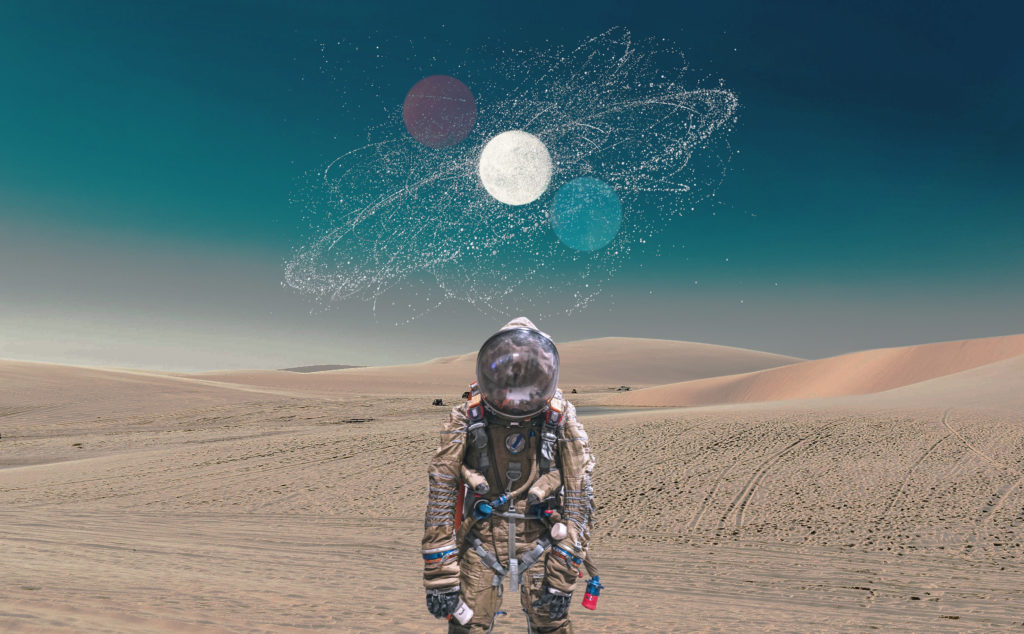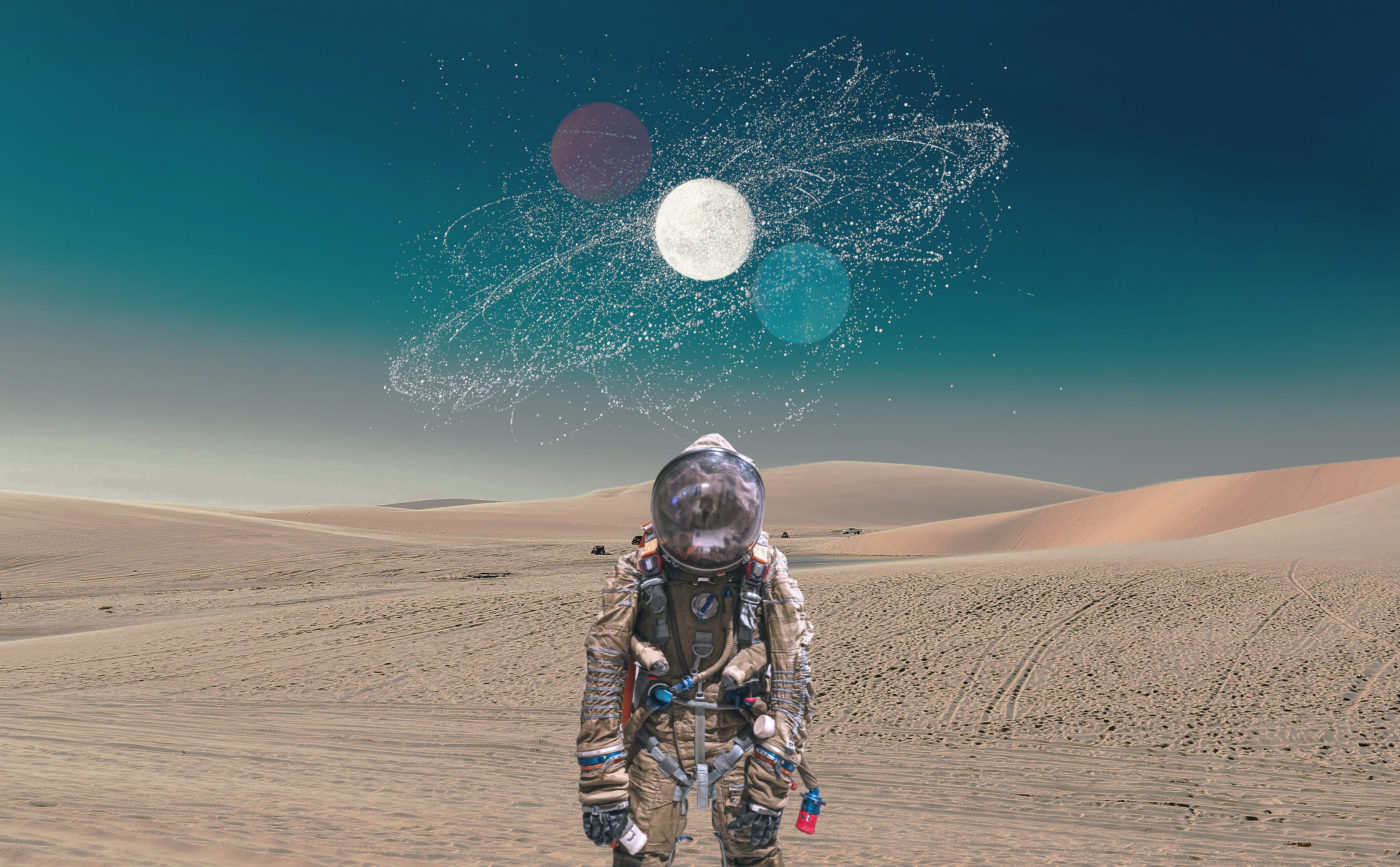
“You guys are taking forever to drink this coffee,” I yelled at my coworkers, as I threw the paper glass into the trash. “A discovery this big, how are you not running to work the details out of excitement?”
“It’s 5 AM, and we’ve been working for the past week. On top of that, we’ve gotten less than 4 hours of sleep tonight. Still wonder why?” Sam bellowed at me. I shrugged it off as I started walking back into the lab, excited about what lay ahead of me.
We had picked up on a possible geomagnetic reversal. The magnetic north and south of our planet will change again. A wide stretch of area from Africa to South America found the magnetic field weakening for unknown reasons. While the latest, the Brunhes-Matuyama reversal, occurred about 780000 years ago, the evidence seemed to be pointing to the current one’s completion by 2020.
“Can we go over what we’ll be trying to figure out today, Alex?” I heard Sophia as she walked back into the lab with the others. I saw as each of them yawned and I noticed the coffee wasn’t enough to wake them up.
“We should try to figure out how the navigation systems and satellites might stop working. Since these systems depend on the pole’s location, it is important for our research. Once we find it, we can finally present the research to the others,” I spoke, and they nodded as we began working.
While I worked, I couldn’t help but think about how we got here. We might have been sceptical of it at the start, but if you look over the sleepiness this project causes, it’s taken over our lives. We’re fully engrossed, but I still fear the cynicism. This was, after all, a project passed down to other scientists. What if people are dismissive of our research? I shook the thought away and started to observe the patterns from different experiments.
After 3 hours, Sophia finally ushered us over. “I think I’ve figured it out,” she said. “As we know, the Earth’s geomagnetic field has been dropping for the past 200 years, and it might bottom out in about 2000 years, leaving our planet unprotected from the sun. Now, this drop in intensity is associated with the geomagnetic field reversal. With the weakened geomagnetic field and the increased solar radiation, electronic devices can be destroyed.”
As we stared at each other, I could tell by their looks that all of us were thinking the same thing. How could the research be over so soon? Four months flew by so quickly, filled with coffee and excited chatter over discoveries. All that was left now was to present our ideas forward in the press conference.
As we stepped onto the podium, I wondered if we were well-prepared. Sure, we worked hard on this for four whole months, but it’s easy to doubt yourself at moments like these. We faced the room to see reporters and scientists before beginning with our presentation.
The three of us explained to them in brief what a geomagnetic reversal was. We told them about how the compasses would show the north as south and vice versa. We explained how animals that use the Earth’s magnetic field for navigation, like birds and sea turtles, could get lost during the routine. The only solution is giving it time, and it’ll sort itself out. We talked about how mobile phones, satellites and navigation systems may have problems or stop working entirely. Once we finished with our presentation, we asked for questions from the audience.
“Would this cause mass extinctions?” One reporter asked.
“There’s no data about this yet, but I highly doubt it,” Sophia replied.
“Would a geomagnetic reversal be good or bad?” Another asked.
“Both. The slow polar meander is good since it gives us time to prepare for the reversal. However, the planet’s magnetic field helps shield us from solar as well as cosmic radiation, and a protracted flip means Earth might be slightly less protected from the harmful space rays. However, we will still have the atmospheric layer, and environments will have to be altered to assure people it’s not as dangerous,” I said.
“We’ll take a final question before we wrap up this discussion,” Sam said.
I looked around as the room burst into murmurs. At this moment, I felt happy. They believe this, and they’re realising that this isn’t anything less of a phenomenon. What else could a scientist possibly ask for? Finally, a lady in the second row was picked.
“You mentioned that it’s both good and bad. However, the pros outweigh the cons. So, should we really be worried about this?” The lady asked.
“Only if the field gets substantially weaker and stays that way for an appreciable amount of time, but the strength is already quite variable, so there’s no indication it should cause as big of a problem at the moment,” Sam answered.
I could see people losing interest, feeling that the crisis has already been averted. They walked out of the room, now having taken our research considerably less seriously.
“Why did they make such a big deal out of something which wouldn’t hold life-threatening consequences for us at the moment?” One of the reporters snickered, and all three of us heard it.
As we came back to the lab, we all felt sad. We wanted to hold people by their shoulders one by one and tell them what a catastrophe this could be. But was anyone going to believe us now? I thought the conference was going well, but maybe I just thought that to keep my spirits high. After all, we did spend four months here, tirelessly. It’s easy to confuse yourself trying to figure humans out.
“Alex, you need to come here right now,” Sam yelled out.
As I walked over to her desk, I couldn’t help but wonder what could be so urgent. Standing beside her, I noticed her computer—red blinking lights near Brazil, stretching to Ghana. I stared at Sophia and Sam as they stared directly at the computer screen.
“It’s happening.”
It had been an hour since the geomagnetic reversal started. Every time I looked at the computer screen, new red lights appeared on the map. They were spreading out nearly radially at an irregular rate.
“It feels impossible to predict the rate at which the geomagnetic reversal is spreading,” I said out aloud, perplexed by the huge amount of data showing up on my screen.
“It may take anywhere between months to years for the magnetic field to weaken across the entire planet,” Sophia replied. “The irregularities might throw off our calculation by a significant margin of error,” she continued.
“Brazil, Ghana and some areas of their nearby countries have gone completely dark,” Sam shouted from his workspace. He frantically dialled emergency numbers for other countries that the wave was expected to hit soon.
“If only the concerned officials had listened to us when we warned them. None of them took us seriously because of the press conference,” said Sophia in a frustrated tone.
“It’s all over the internet,” Sam replied. I checked my phone. Hashtags about the shutdown across Brazil and Ghana were trending all over Social Media. Not only that but our press conference which was nudged off as irrelevant earlier had become a hot topic of debate.
It would be quite a while before any form of communication could be reestablished with these countries. Even transportation might get disrupted depending on the level of weakening of the magnetic field.
I glanced at the sleep-deprived faces of my fellow teammates who were busy monitoring the weakening magnetic field. Could we have done something better? Maybe if the presentation had gone better? I shuddered with anticipation of events that were going to unfold.
“Let’s get our research to reach out to as many people as possible. We have to predict the weakening of the magnetic field across the globe as accurately as possible before it reaches us,” I announced to the entire team.
“The one with the most accurate results gets to keep Alex’s Tesla,” Sophia said jokingly.
Once the wave of weakening magnetic field hits our area, the car might not even work anymore, I thought to myself as I smiled. Everyone else realized that too, but that comment still managed to boost everyone’s morale.
It was the start of the final mission of our research team.
A few days later, the weakening magnetic field had finally reached our lab. All of the electronic equipment stopped working. The desktop screens went black as if someone had pulled the plug.
Even though no one had taken us seriously when it all started, mankind had come together. The countries that were yet to be affected were helping out those that had been. All official bodies were tied down in heated discussions on how to overcome the crisis. The era of technology as we know it now is coming to an end.
As we stepped out of the lab, Sophia exclaimed, “Is that a shooting star?”
I looked up into the sky. “Wait! I think it might be a satellite,” I answered.
“Yeah, quite a few of them have been falling from their orbits into the atmosphere. Many more are expected to fall in the coming months,” Sam replied.
I looked up again at the sky, which would soon be full of many more of these man-made shooting stars.
Written by Harshaj Sood and Kaavya Azad for MTTN
Featured image by Tirthik Saha for MTTN

Leave a Reply
You must be logged in to post a comment.